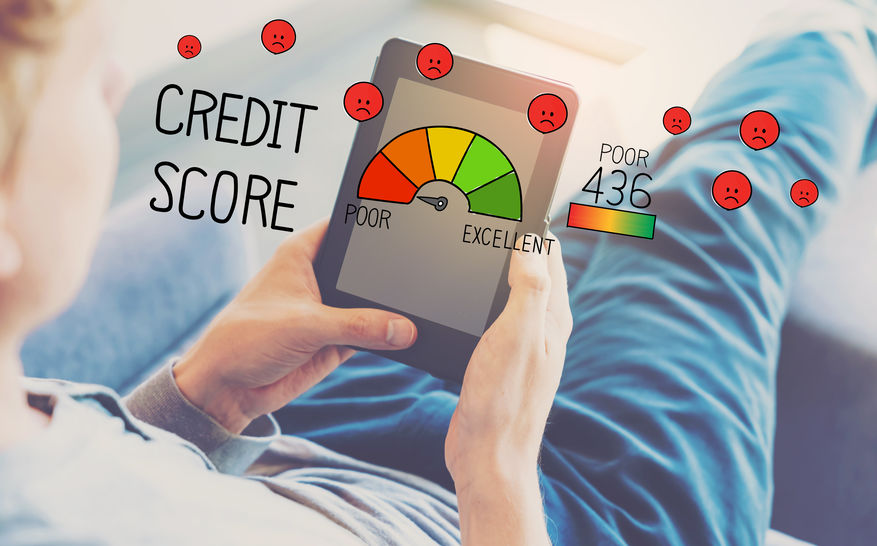
Making sure your financial status is in order is a vital component of buying a house. One of the most important reasons is that a higher credit score means you’ll get a better mortgage rate. Be sure not to make any of the most common credit score mistakes.
Your credit score is used by mortgage lenders, and by all lenders for that matter, to determine how diligent you are about managing your debt. It’s assumed that this will demonstrate how committed you are to completing your mortgage payments on schedule.
If you’re planning to buy a house, there are common things you should avoid doing that will harm your credit score.
YOU HAVEN’T LOOKED AT YOUR CREDIT REPORT IN A LONG TIME
When you’re getting ready to buy a house with a loan, you’ll want to check your credit record. Around 25% of credit reports contain inaccuracies, believe it or not. These mistakes might have a detrimental influence on your credit score. Every year, you are entitled to a free credit report check. If you discover any errors, such as an incorrect address or a credit card that isn’t yours, it’s critical that you remedy the problem right once.
MAKING PAYMENTS LATE
You couldn’t be more wrong if you assume it doesn’t matter whether you pay your bills on time or not. One of the most essential aspects in evaluating your credit score is your payment history. The more late payments you make, the lower your credit score will be. If you’re having trouble making a payment, give the customer support department a call. If it’s your first time, they’ll usually give you a goodwill adjustment for a late payment and wipe the incident from your record.
GETTING RID OF OLD ACCOUNTS
Although most people believe that paying off and cancelling an old credit card is a good move, it is not the ideal thing to do before applying for a new mortgage. Closing old accounts can accomplish two goals. The first is to reduce your credit history, while the second is to use more of your available credit. To avoid these two frequent credit score concerns, keep your older cards open.
FAILURE TO PAY TAXES
Unpaid state and federal taxes can have a 15-year negative impact on your credit. If you’re hoping to buy a house during this time period, this can be a huge concern. In addition, paid tax liens stay on your record for seven years. This will significantly lower your credit score.
GETTING A LOAN FOR A BIG PURCHASE
Avoid using credit to fund a significant purchase like a car, major appliance, or vacation if you’re putting your finances in order to buy a home. When your credit score is evaluated, the amount of debt you have might affect up to a third of your score. This has an impact on your debt-to-income ratio. Your credit score will suffer if you take on more debt than you have available credit.
NOT PAYING LIBRARY LATE FEES OR YOUR PARKING TICKETS
It may come as a shock, but any library late fines you owe might actually hurt your credit score! Also, if you have any unpaid parking tickets, make sure you pay them. Unpaid fines are increasingly being reported to collection agencies by municipal governments. These will appear on your credit record and have a negative impact on your credit score.
To summarize, being careful with your purchases, making on-time payments, paying off debts, and being diligent about finding faults are the greatest strategies to ensure that your credit score is as high as it can be.
Summary: Common Credit Score Mistakes
Making sure your financial status is in order is a vital component of buying a house. One of the most important reasons is that a higher credit score means you’ll get a better mortgage rate. Your credit score is used by mortgage lenders, and by all lenders for that matter, to determine how diligent you are about managing your debt. It’s assumed that this will demonstrate how committed you are to completing your mortgage payments on schedule.
Getting ready to buy a home with the help of a loan means you need to check your credit report. Believe it or not, around 25 percent of credit reports contain errors. These errors can negatively impact your credit score. You are entitled to check your credit report for free every year. If you find any mistakes, including an address or credit card that isn’t yours, it is important that you take the necessary steps to have the error corrected.
If you have any questions about Common Credit Score Mistakes contact me today.
